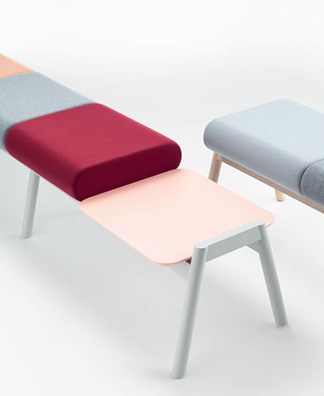Do your sliding glass doors expose you to harsh sunlight or prying eyes?
Traditional blinds often need to catch up when covering large door openings, hindering both function and style.
Explore the perfect blinds that offer control over light and privacy and elevate the aesthetic of your sliding glass doors.
Key Considerations for Choosing Blinds for Sliding Glass Doors
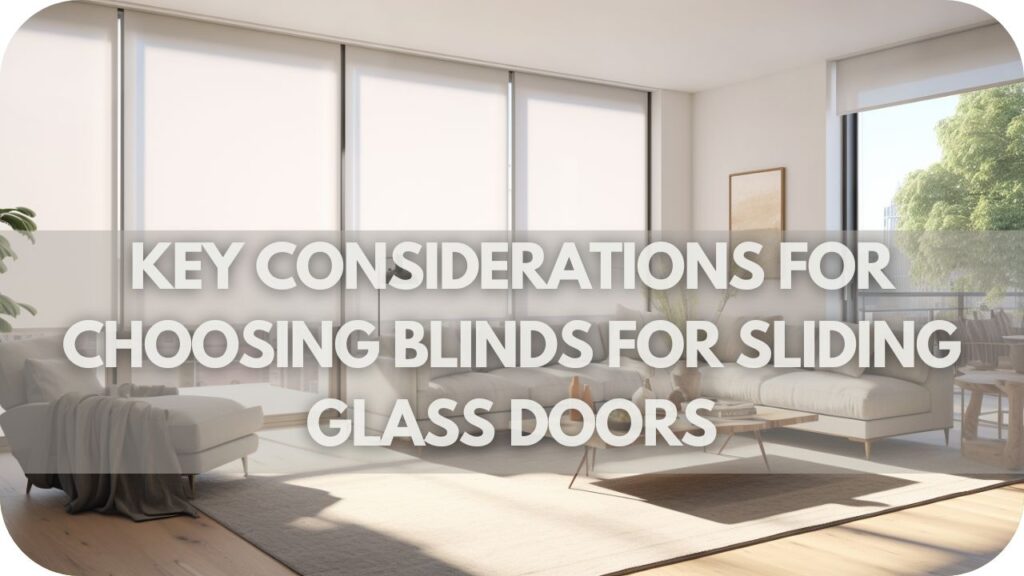
When choosing blinds for sliding glass doors, several key considerations will help you select the right option that balances functionality, style, and practicality:
- Usage Frequency: For high-traffic areas, choose blinds that offer smooth and easy operation, such as vertical or panel glide blinds, allowing quick access without hindering movement.
- Privacy and Light Control: Select blinds based on the privacy and light control level needed. Blackout options are ideal for bedrooms, while light-filtering blinds like sheer curtains work well in living areas.
- Aesthetic Appeal: Ensure the blinds complement your room’s design. Sleek materials like aluminium may benefit modern interiors, while fabric or wooden blinds might suit traditional spaces.
- Durability: To ensure long-lasting blinds, opt for materials that can withstand direct sunlight and frequent use, such as PVC, aluminium, or treated fabrics.
- Energy Efficiency: Choose blinds with insulation properties, such as thermally lined roller blinds, to help regulate your home’s temperature and reduce energy costs.
- Ease of Maintenance: Consider how easy the blinds are to clean and maintain. Materials like PVC and aluminium are typically low-maintenance, making them ideal for busy households.
- Child Safety: If you have children, opt for cordless or motorised blinds to eliminate the risk of cord-related accidents and ensure a safer environment.
Types of Blinds Suitable for Sliding Glass Doors
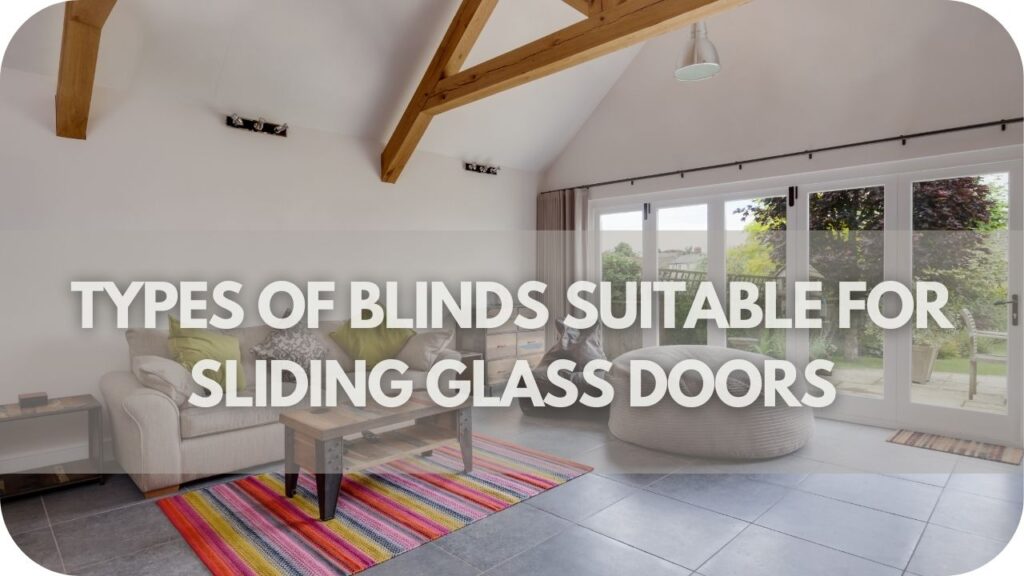
Sliding glass doors present unique challenges when selecting the right window treatments. Here are several types of blinds that are ideally suited to address these challenges:
1. Vertical Blinds
Vertical blinds offer excellent light control and privacy while allowing easy access to the door. Suitable for casual and formal settings, they come in various materials and colours to match any décor.
Vertical blinds are a traditional yet convenient choice for sliding glass doors. These blinds consist of individual slats that hang vertically and can be tilted to control light and privacy or entirely drawn to the side for unobstructed access to the door.
Vertical blinds are particularly effective in large spaces and can be customised with various materials such as fabric, PVC, and aluminium. The fabric options offer a softer look, while PVC and aluminium provide durability and easy maintenance, making them ideal for high-traffic areas.
Vertical blinds are also known for their versatility in light control. You can adjust the angle of the slats to let in just the right amount of light while maintaining privacy.
2. Panel Glide Blinds
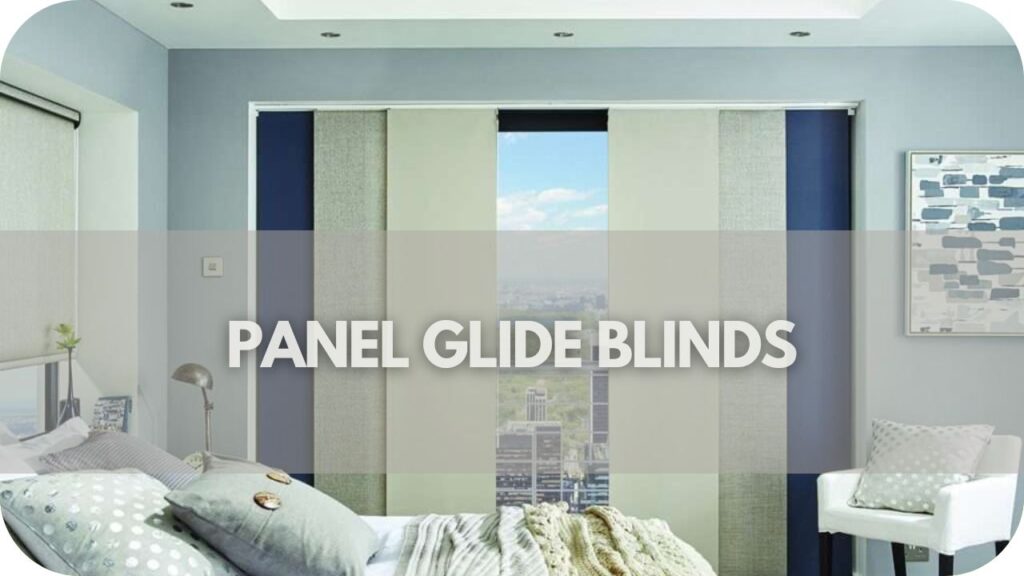
Panel glide blinds feature large fabric panels that glide along a track. Similar to vertical blinds, they offer a sleeker, more contemporary look and smooth and effortless operation, making them perfect for sliding glass doors.
The wide panels offer excellent light control and can be easily stacked to one side. Panel glide blinds are well-suited to modern and minimalist interiors, offering a clean and streamlined appearance.
3. Roller Blinds
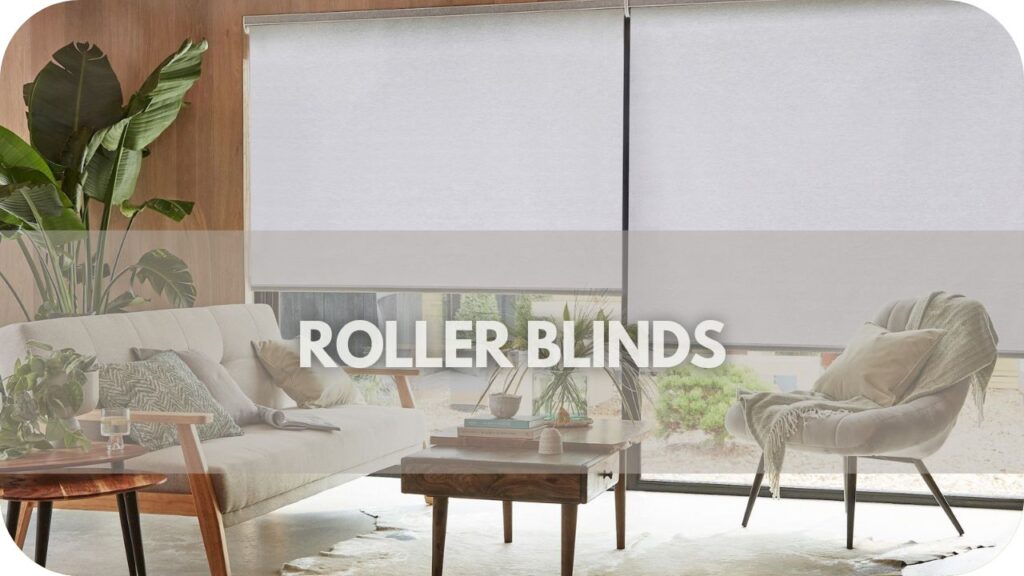
Roller blinds offer a versatile and space-saving option for sliding glass doors. Made from a single piece of fabric that rolls up onto a tube, these blinds provide a sleek, uncluttered look ideal for modern, minimalist decor.
Roller blinds are available in a wide range of fabrics, including light-filtering, blackout, and solar screens, giving you flexibility in light control.
Light-filtering fabrics allow soft natural light to enter while maintaining privacy, while blackout fabrics are perfect for bedrooms or media rooms where total darkness is desired.
Roller blinds can be operated manually with a chain or cord or motorised for added convenience, making them a practical choice for frequently used doors.
4. Venetian Blinds
Venetian blinds feature horizontal slats that can be tilted to control light and privacy. They are typically made of wood, aluminium, or PVC and provide precise control over light and privacy levels, allowing optimal comfort.
Venetian blinds are durable and easy to clean, making them suitable for high-traffic areas. Offer a classic and timeless look that complements traditional and contemporary interiors alike. Available in a wide range of finishes and colours to suit any taste.
5. Sheer Curtains
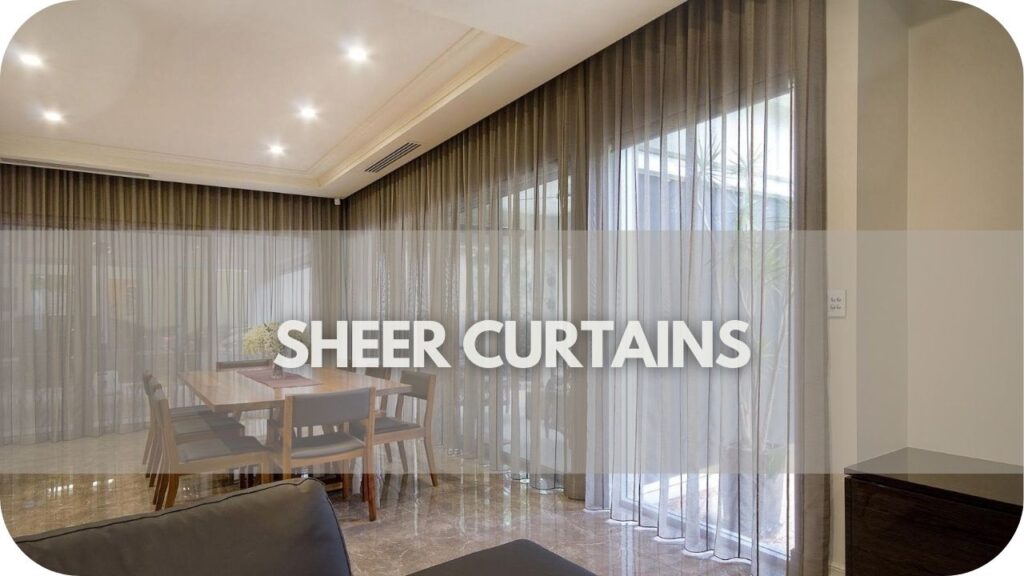
Sheer curtains are a stylish and elegant option for sliding glass doors, adding a touch of softness to any space. Made from lightweight, translucent fabrics, sheer curtains allow natural light to filter through while offering privacy.
They create a warm and inviting atmosphere, perfect for living rooms or dining areas where you want to maintain an airy, open feel.
Sheer curtains can also be layered with other window treatments, such as blackout blinds or heavier drapes, to provide versatility in light control and privacy throughout the day.
Their flowing fabric can add a decorative element to your space, complementing various traditional and contemporary interior design styles.
6. Blackout Blinds
Blackout blinds are ideal for rooms with complete light control, such as bedrooms or home theatres. These blinds are made from thick, opaque fabrics that block out all incoming light, ensuring total privacy and darkness.
Blackout blinds are beneficial for people sensitive to light while sleeping or for rooms requiring minimal light exposure, such as nurseries or media rooms. They can also help reduce external noise and improve energy efficiency by providing additional insulation against heat and cold.
Blackout blinds are available in various styles, including roller, vertical, and panel glide, allowing you to choose the best fit for your sliding glass doors.
Installation and Maintenance
Installation
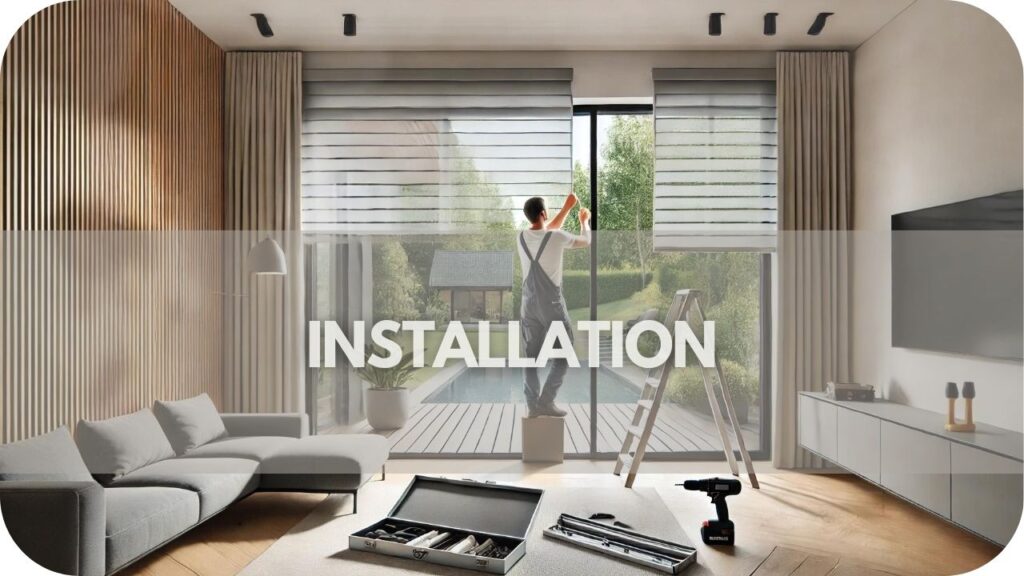
For DIY Installation, Begin by accurately measuring your sliding glass doors to ensure a perfect fit. Measure the width and height of the door frame, and decide whether you want the blinds mounted inside the recess or outside.
Mount the brackets at the correct positions depending on your chosen installation type. For inside mounts, ensure the brackets are level and fit securely within the door frame. For outside mounts, the brackets should be placed above and to the side of the frame to allow the blinds to cover the entire door.
Once the brackets are in place, attach the blinds according to the manufacturer’s instructions. Most blinds, such as vertical or panel glide blinds, will have a clip or hook system that makes installation straightforward. Ensure that all mechanisms, such as tracks or rollers, function smoothly.
Test the blinds to ensure they open, close, and adjust smoothly. Make minor adjustments to ensure the blinds operate without any hitches if needed.
Hiring a professional is a wise choice if you have complex window structures, prefer motorised blinds, or simply want to ensure a flawless installation. Professionals can handle intricate installations and ensure the blinds are perfectly aligned and fully functional.
Maintenance

Proper installation and regular maintenance will ensure that your blinds for sliding glass doors remain functional, stylish, and long-lasting, adding comfort and aesthetic value to your home.
- Dusting: Regularly dust your blinds with a soft cloth, feather duster, or vacuum cleaner with a brush attachment. This is particularly important for vertical and panel glide blinds, where dust can accumulate along the slats or panels.
- Spot Cleaning: For fabric blinds, such as roller or panel glide blinds, spot-clean any stains or marks with a mild detergent and water. To avoid damage or discolouration, always test the cleaning solution on a small, inconspicuous area first.
- Deep Cleaning: Depending on the material, some blinds may require occasional deep cleaning. Fabric blinds can sometimes be removed and professionally cleaned, while vinyl and aluminium blinds can be wiped down with a damp cloth.
- Cords and Chains: Regularly check the cables, chains, and other mechanisms for signs of wear and tear. If you notice any fraying or damage, replacing these parts is essential to maintain smooth operation and safety.
- Lubrication: For blinds with tracks, such as panel glide or vertical blinds, ensure the tracks are clean and lubricated if needed. Use a silicone-based lubricant to keep the mechanisms running smoothly, but avoid getting it on the fabric or slats.
- Avoiding Sun Damage: Prolonged exposure to direct sunlight can fade or damage some blind materials. To extend the life of your blinds, consider using a lining or choosing UV-resistant fabrics, especially if your sliding doors face direct sunlight.
- Child Safety: Ensure that cords and chains are secured out of reach of children. Consider installing cordless or motorised blinds to eliminate potential hazards.
Practical Tips for Choosing the Right Blinds
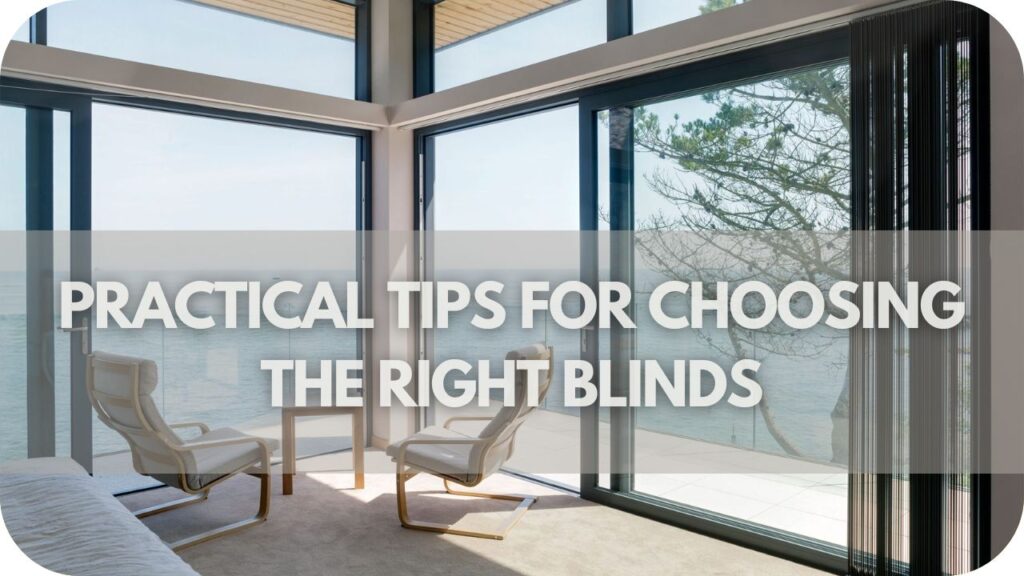
Selecting the perfect blinds involves considering several factors:
- Assessing Your Needs: Determine your primary needs, such as light control, privacy, and aesthetic appeal. Choose blinds that meet these requirements while complementing your décor.
- Evaluating Room Usage: Consider the room’s usage and traffic. High-traffic areas require durable and easy-to-clean blinds. For rooms with children and pets, opt for child-safe and pet-friendly designs.
- Budget Considerations: Balance cost with quality and features. Set a budget and explore options within that range. When making your decision, consider long-term benefits and maintenance costs.
- Door Size: Large sliding doors may require wider blinds or multiple panels.
- Frequency of Use: Choose durable materials and easy-to-operate mechanisms if you’ll adjust the blinds often.
- Customisation Options: Explore customisation and unique patterns to personalise your blinds.Motorisation:
Conclusion
Choosing the right blinds for sliding glass doors can significantly affect functionality and style. You can create a more comfortable, energy-efficient, and visually appealing space with the right choice.
Explore Into Blinds Melbourne’s extensive selection of blinds and discover the perfect solution to elevate your sliding glass doors.


